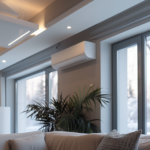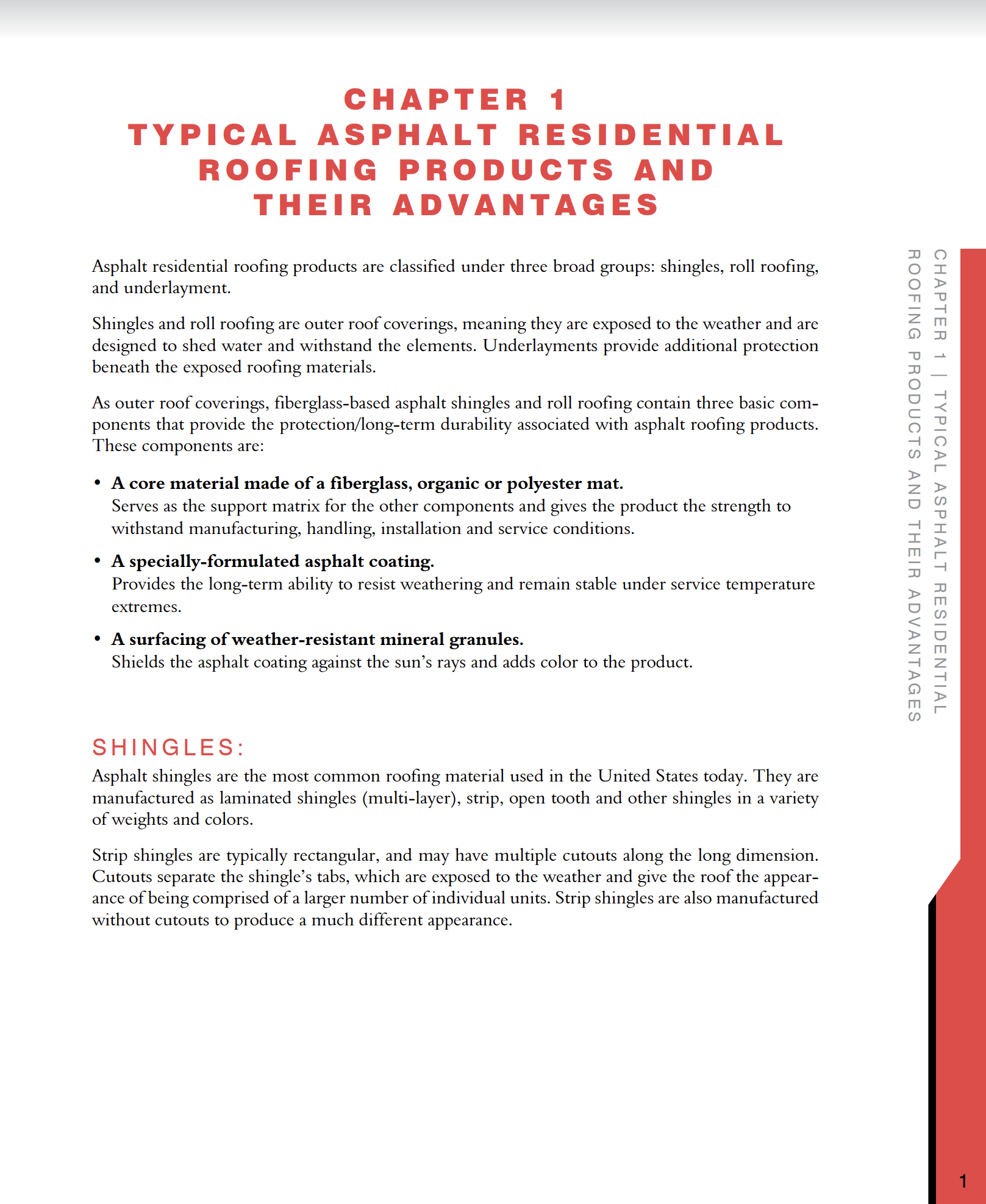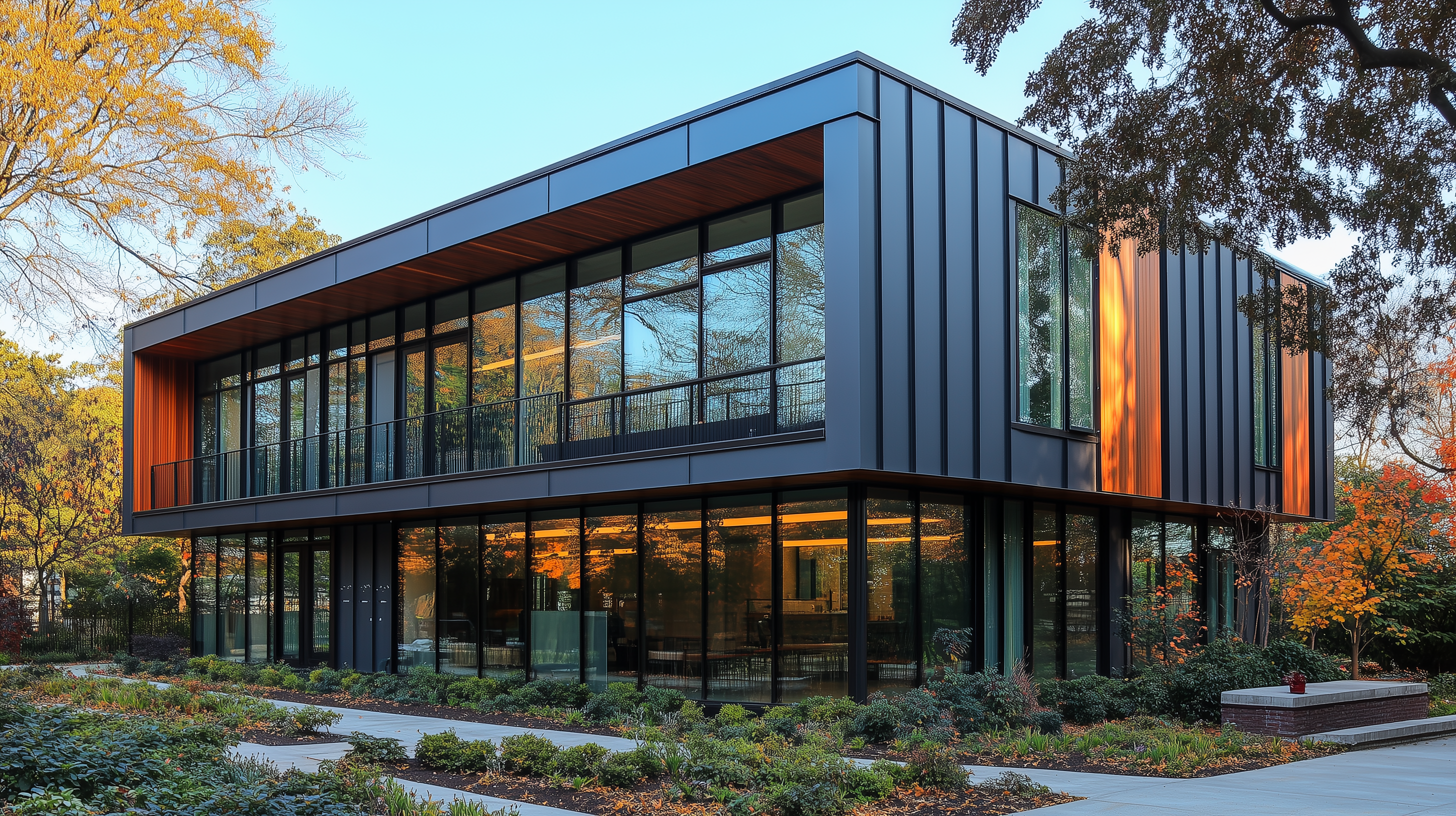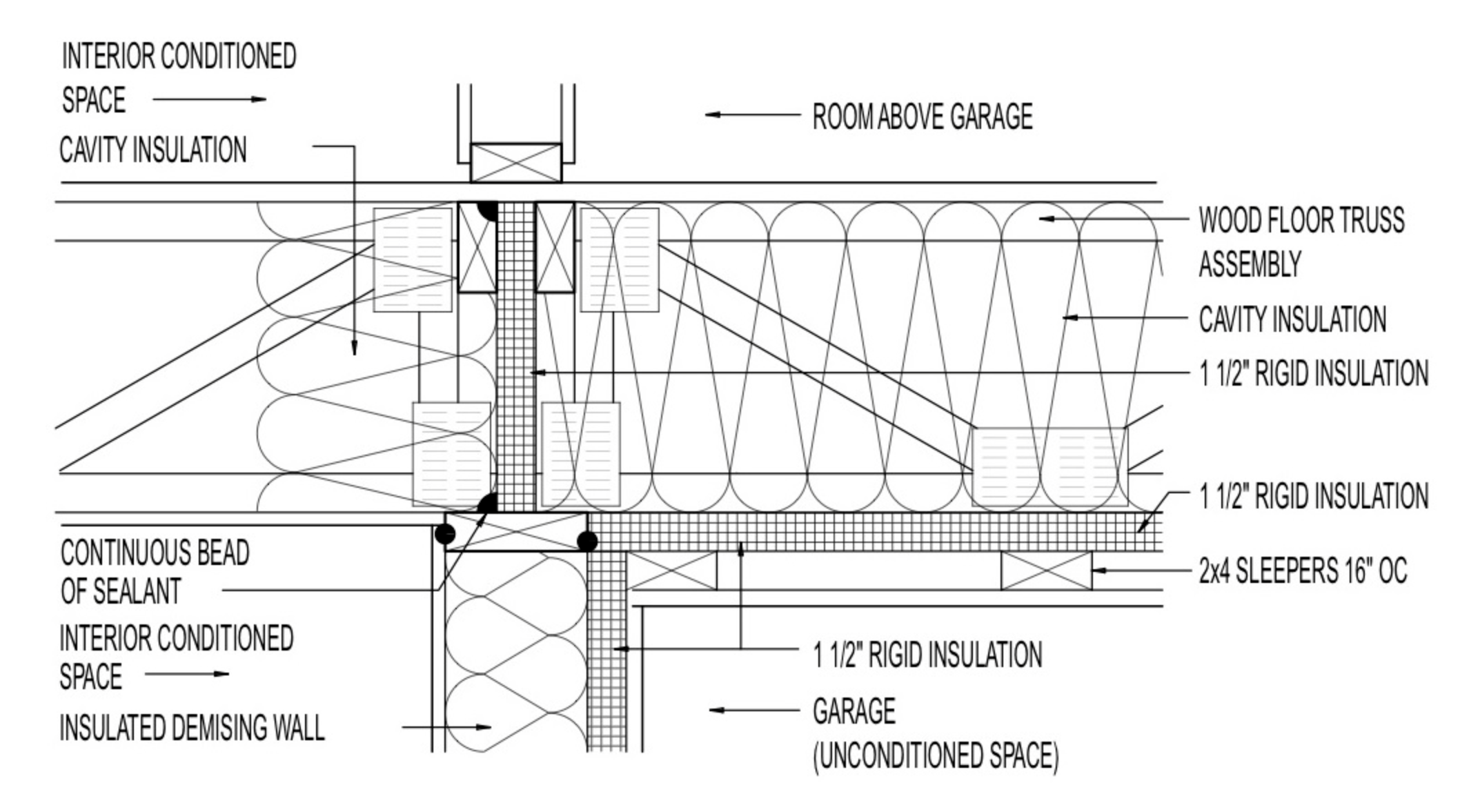Typical Asphalt Residential Roofing Products and Their Advantages
Chapter 1 of A.R.M.A.’s residential asphalt roofing manual design and application methods serves as a foundational exploration, focusing on the typical asphalt residential roofing products and elucidating their inherent advantages. As we embark on this journey, we’ll uncover the evolution of asphalt roofing, its significance in the roofing industry, and the critical role it plays in safeguarding homes against the elements.
Foreword:
- Asphalt roofing industry’s growth from 1893 to becoming the leading roofing supplier.
- Asphalt Roofing Manufacturers Association (ARMA) commitment to industry standards and excellence.
- Manual serves as a reference for application techniques and best practices.
Introduction to Asphalt Residential Roofing Products
- Classified into shingles, roll roofing, and underlayment.
- Designed to withstand weather elements and provide protection.
Shingles
- Most common roofing material in the US.
- Available in various configurations, including strip, laminated, and open-tooth shingles.
- This is a list of standards used to demonstrate compliance in North American building codes for shingles:
- Shingles: ASTM D3018, ASTM D3462, CSA A123.5
- Fire: ASTM E108, UL790 & CAN/ULC S107
- Wind: ASTM D3161, ASTM D7158, UL2390 & ASTM D6381
- Impact: ANSI/UL2218
- Asphalt Roof Cement: ASTM D4586, CAN/CGSB 37.5 Cutback Asphalt Plastic Cements
- Self Adhering: ASTM D7505, ASTM D7530, ASTM D1970
- Solar Reflectance: ASTM C1549, ASTM E903, CRRC-1
- Thermal Emittance: ASTM C1371, ASTM E408, CRRC-1
- Specifications detailed in Table 1.
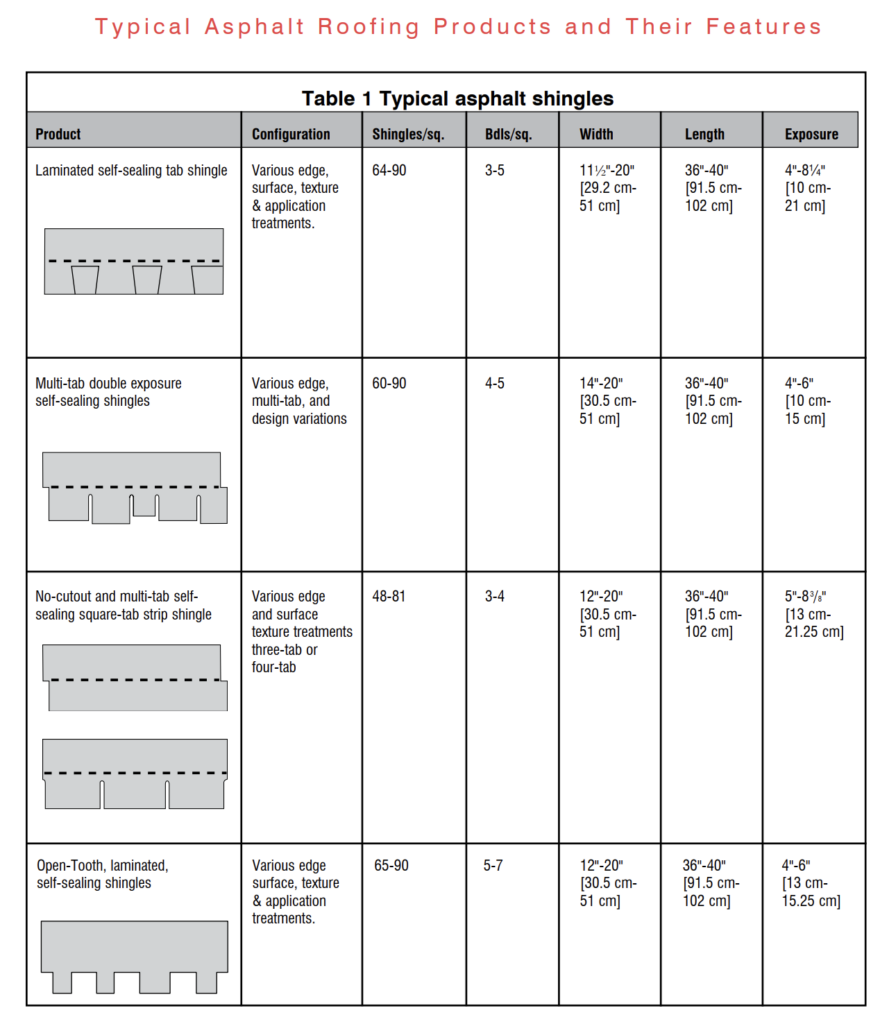
Roll Roofing
- Manufactured in rolls, with smooth or mineral surfaces.
- Important as roof covering and flashing material.
- This is a list of standards used to demonstrate compliance in North American building codes for roll roofing:
- ASTM D6380
- CSA A123.2
- ASTM D7505
- ASTM D7530
- ASTM D1970
- ASTM D3909
- Specifications outlined in Table 2.
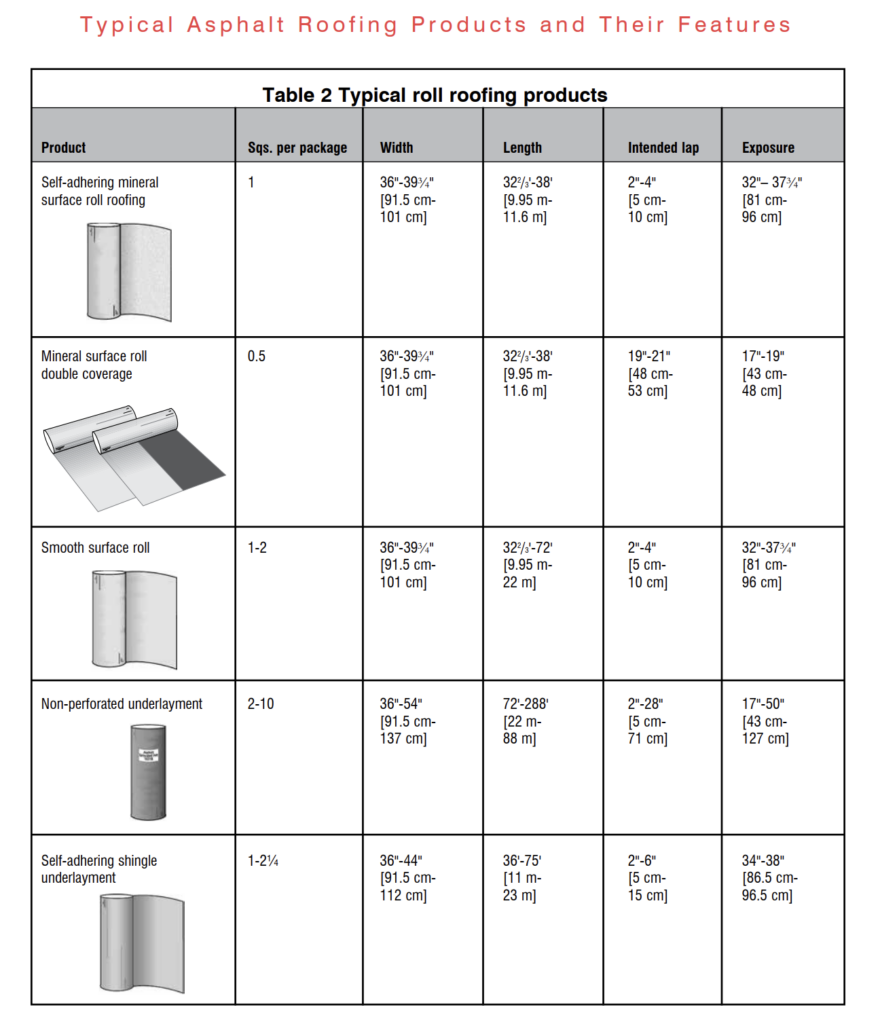
Underlayments
- Felt or mat used beneath roofing materials for additional protection.
- This is a list of standards used to demonstrate compliance in North American building codes for underlayments:
- ASTM D226
- ASTM D4869
- ASTM D6757
- CSA A123.3
- ICC-ES AC48
- ICC-ES AC188
- ICC-ES AC207
- ASTM D2626
Self-Adhering Shingle Underlayment
- Polymer-modified bituminous membranes for critical roof areas.
- Used for ice dam protection and water resistance.
- This is a list of standards used to demonstrate compliance in North American building codes for
- This is a list of standards used to demonstrate compliance in North American building codes for self-adhering shingle underlayment:
- ASTM D1970
- CSA A123.22
- ICC-ES AC48
Advantages of Asphalt Products
- Weather, fire, and wind resistance.
- Economical with low installation costs and long service life.
- Easy application and adaptability to various roof configurations.
- Energy-efficient options available.
- Aesthetic appeal and suitability for different architectural styles.
- Low maintenance requirements.
Conclusion: Asphalt roofing products offer a comprehensive solution for residential roofing needs, combining durability, affordability, and aesthetic versatility. For detailed installation guidance, consult the manufacturer’s instructions and industry standards.
For immediate service or consultation, you may contact us at Allied Emergency Services, INC.
Contact Information:
- Phone: 1-800-792-0212
- Email: Info@AlliedEmergencyServices.com
- Location: Serving Illinois, Wisconsin, and Indiana with a focus on the greater Chicago area.
If you require immediate assistance or have specific questions, our human support is readily available to help you.
Disclaimer: This article is intended for informational purposes only. For professional advice, consult experts in the field.





